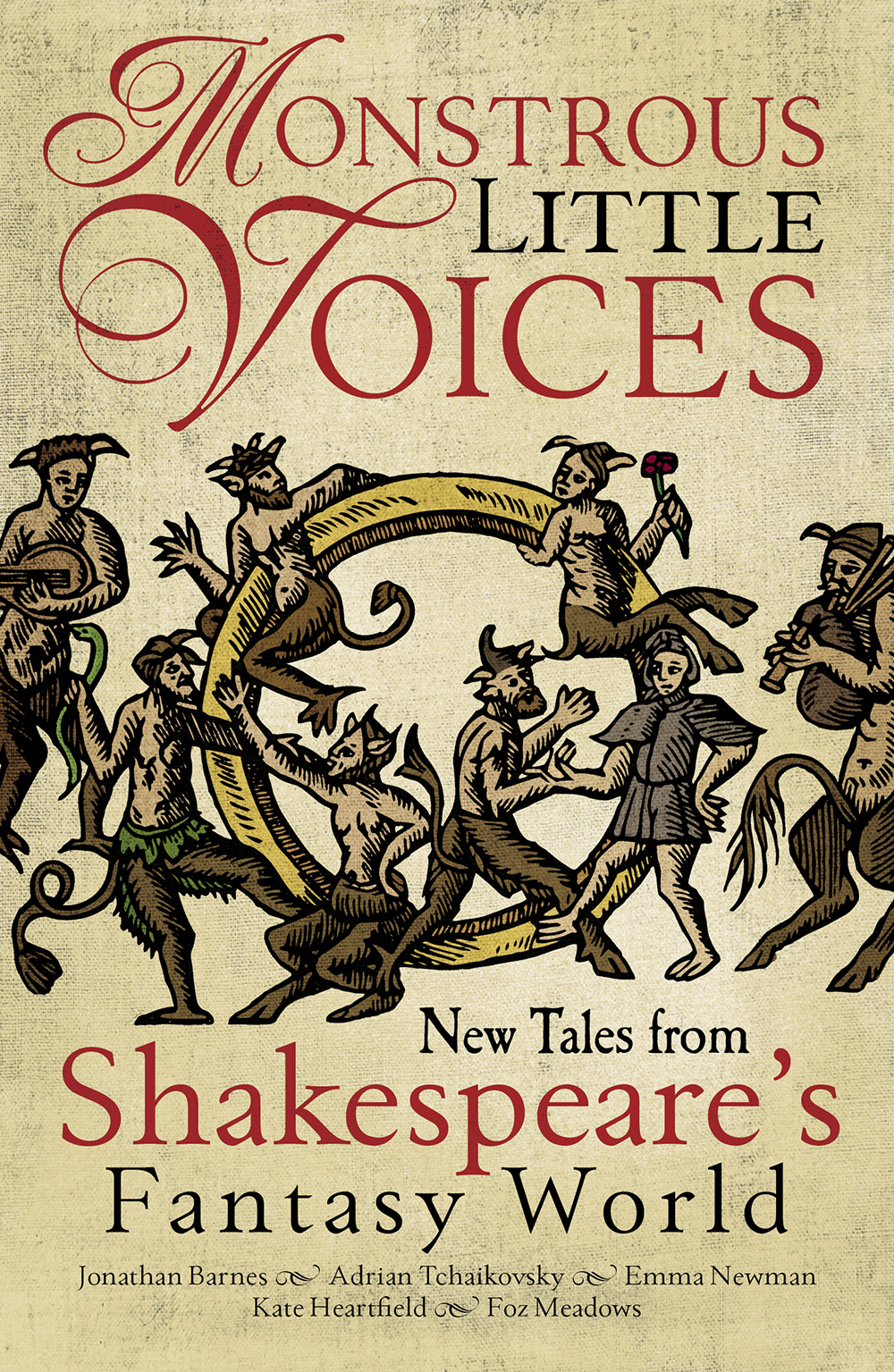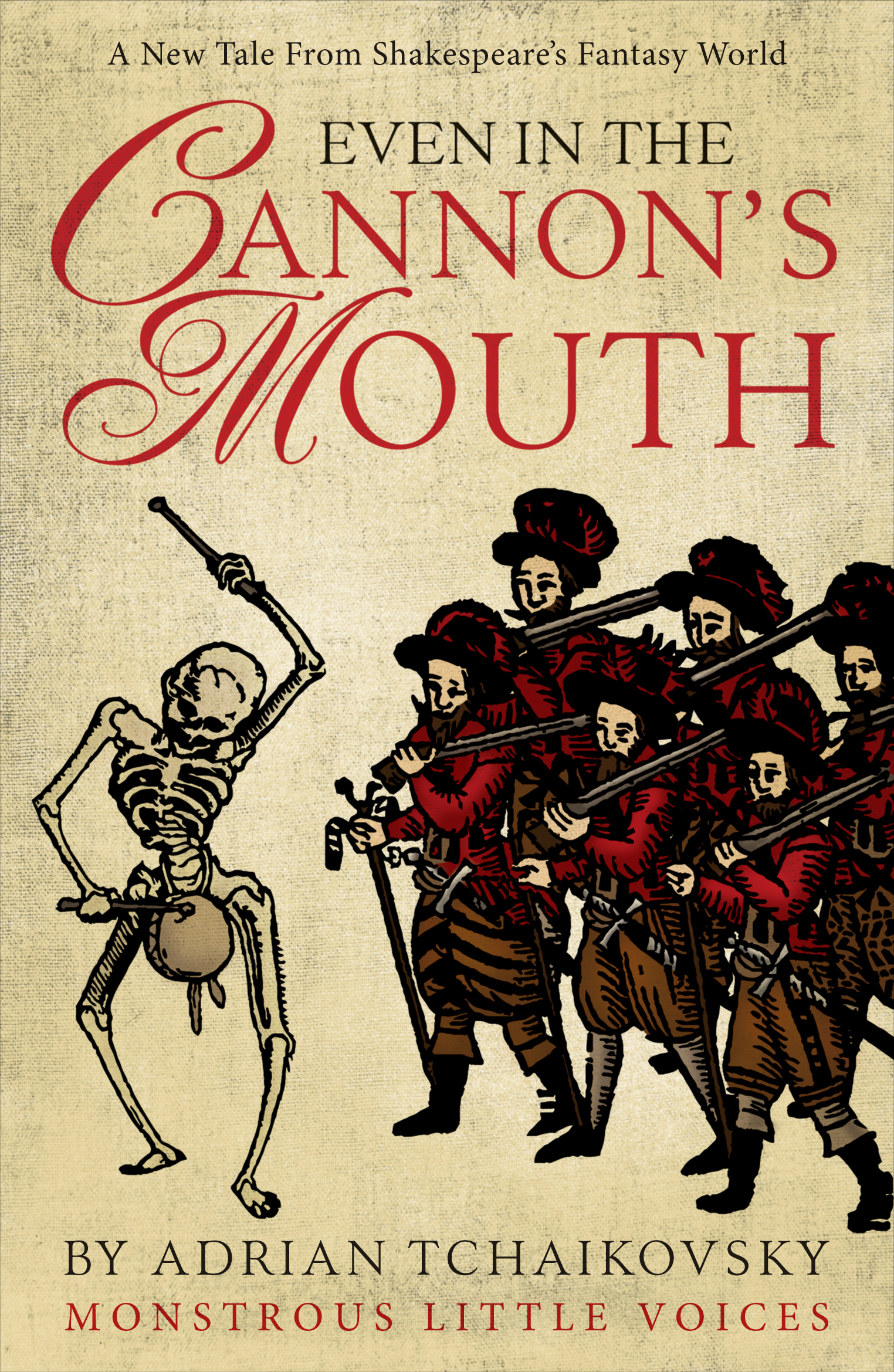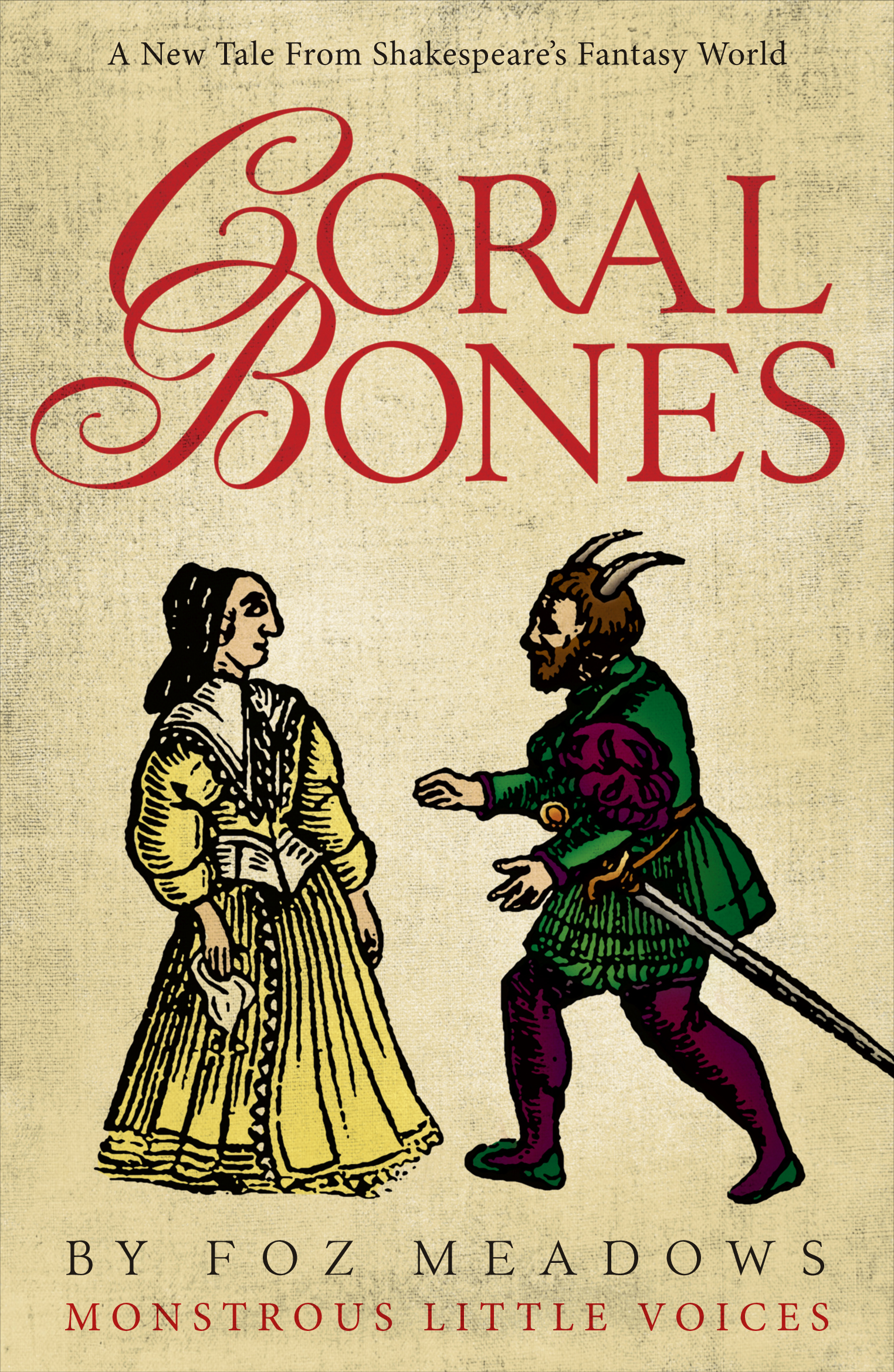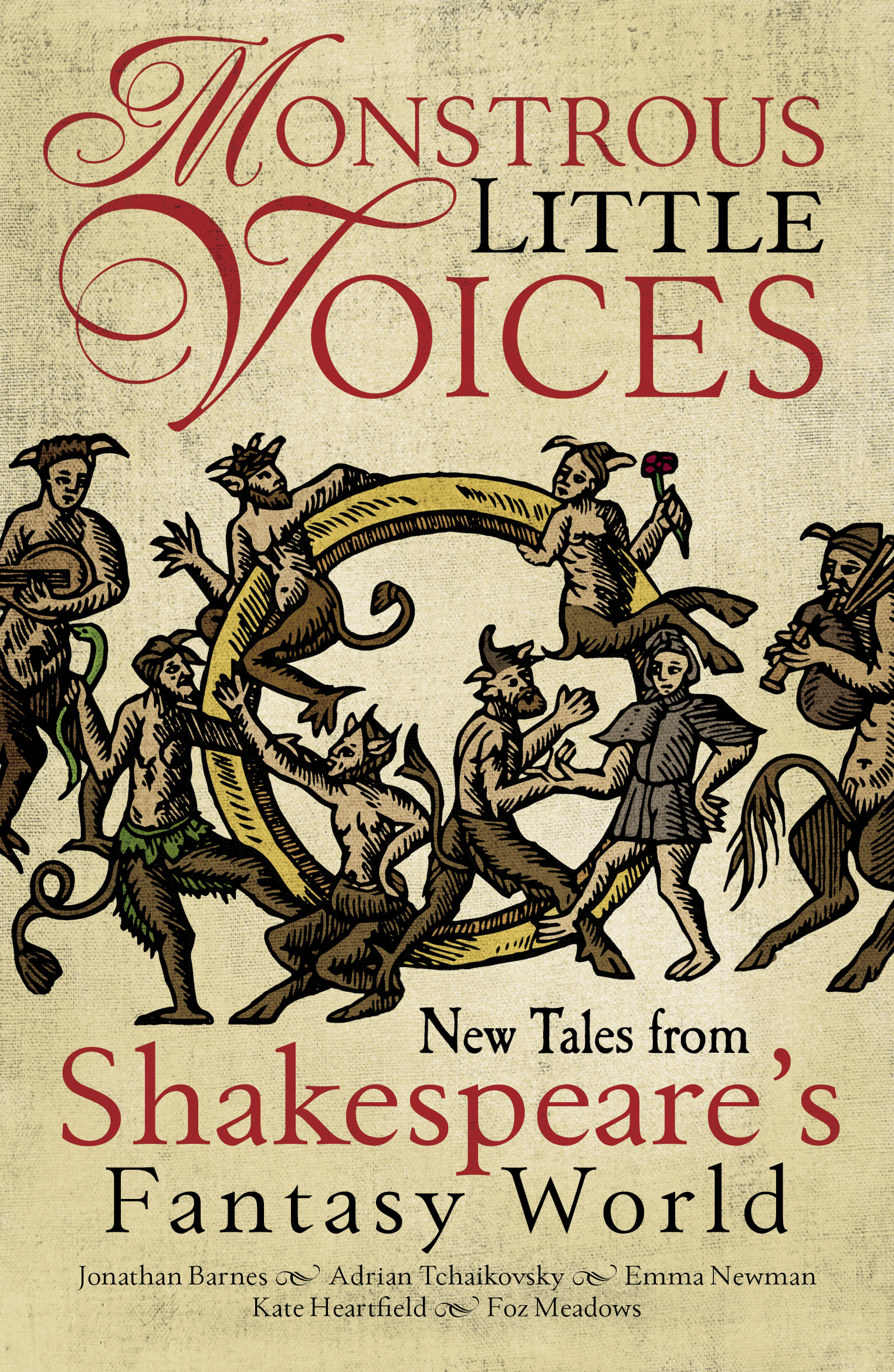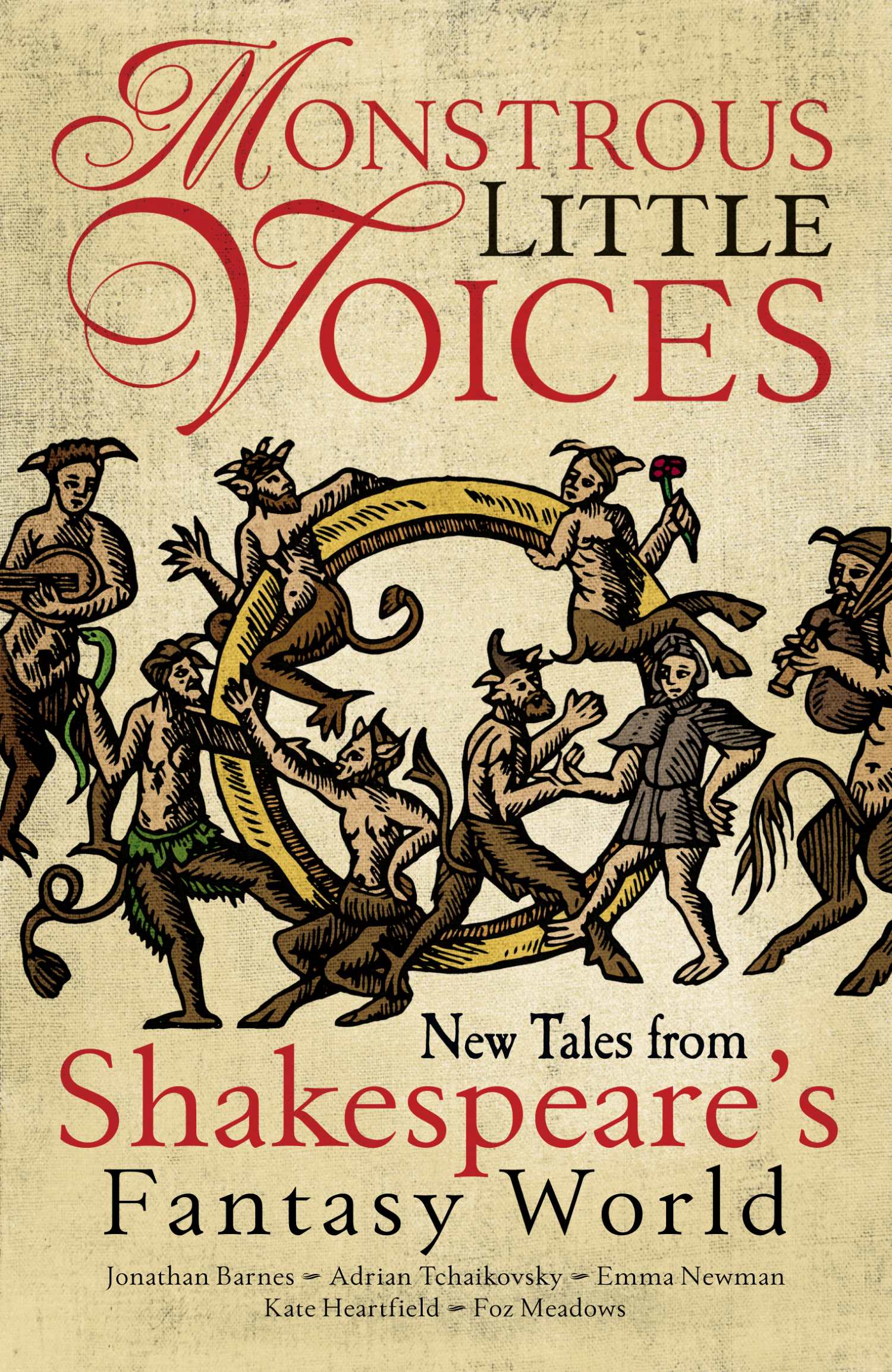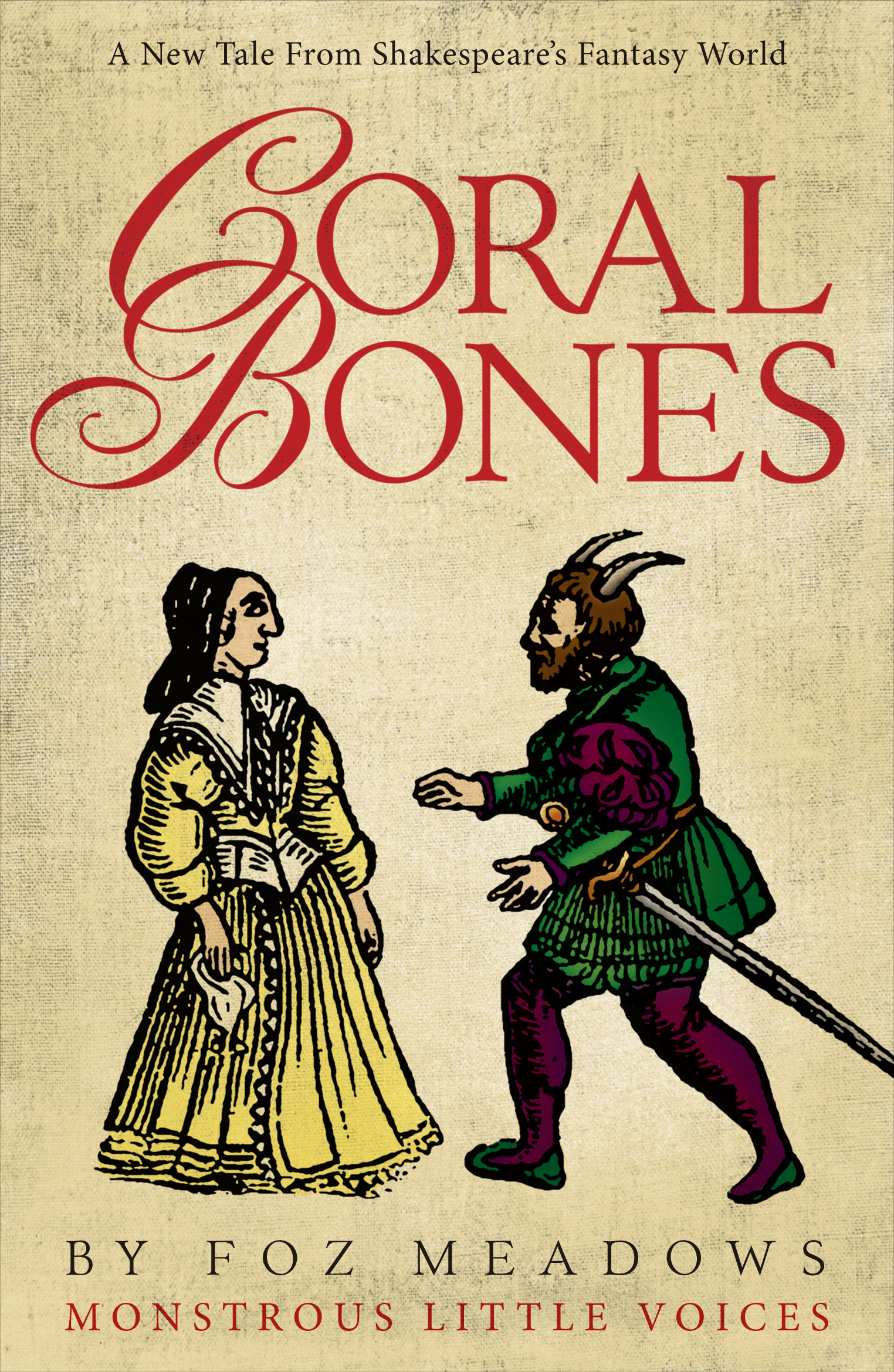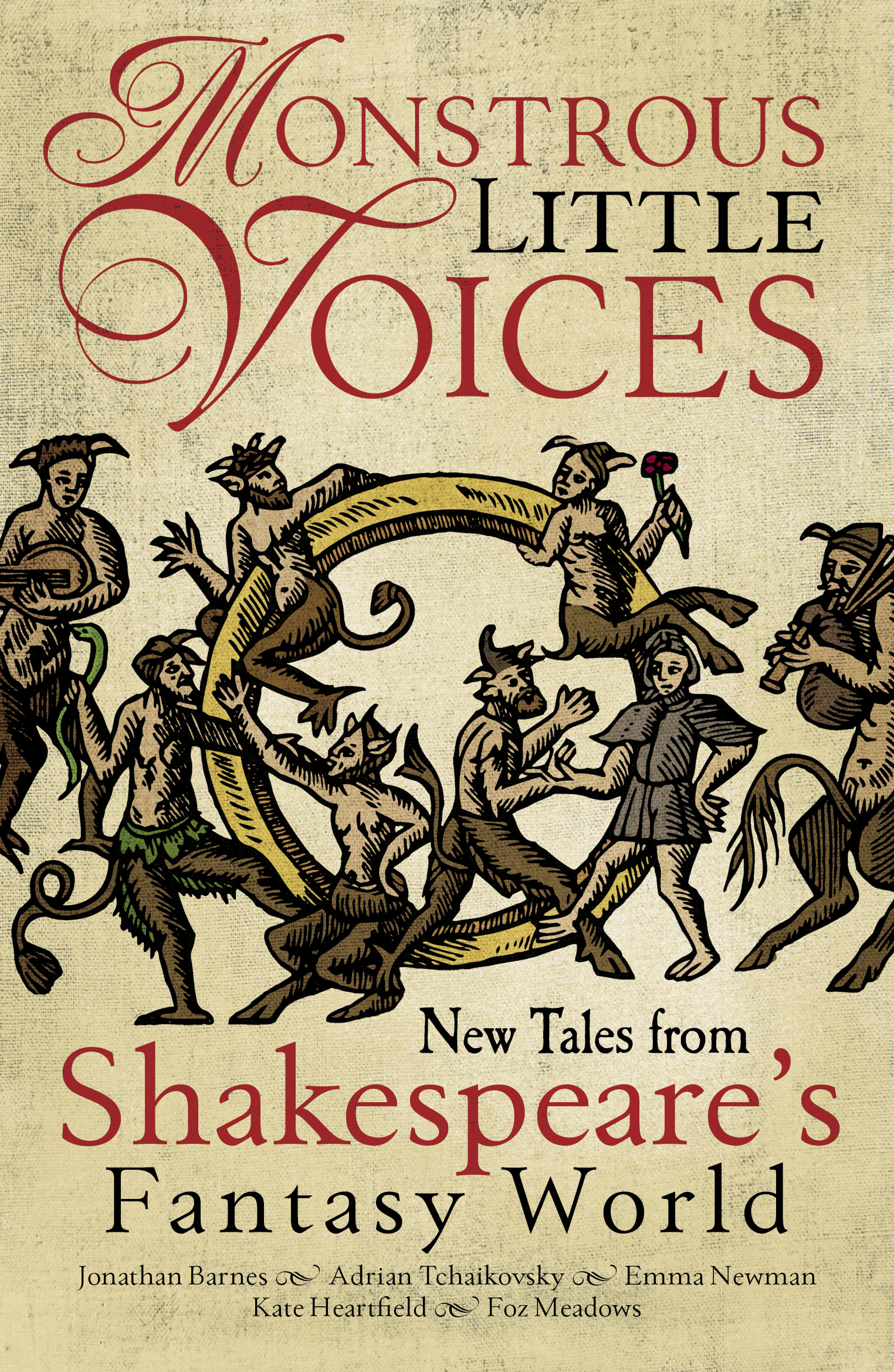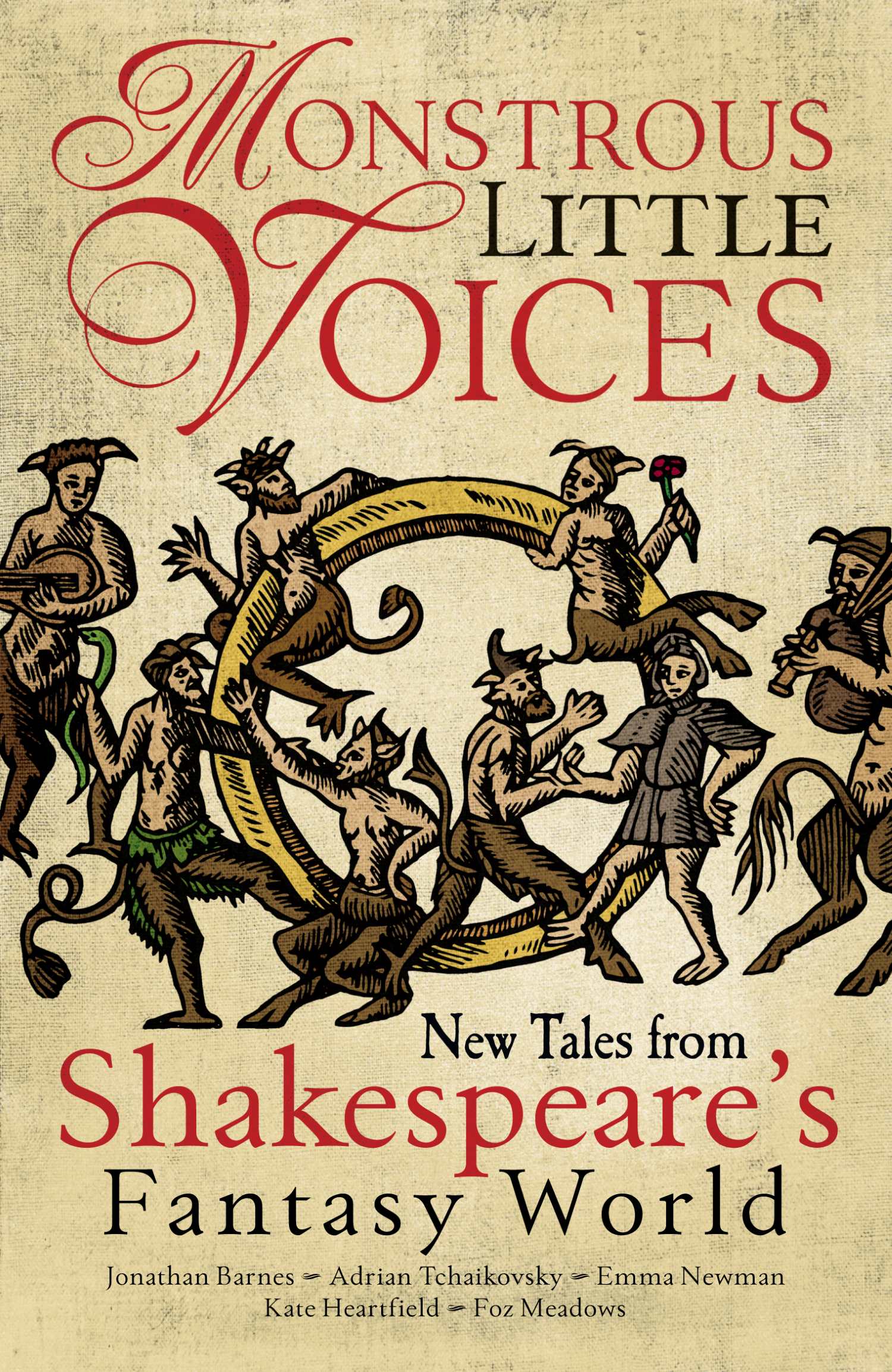
Hey there,
Happy publication day! Monstrous Little Voices hits the shelves (physical and electronic) today in the UK (this Thursday in the US). Get it here.
To get you in the mood, a bit of a teaser/prelude by Mr. Moore:
Blessed Candles of the Night
“It’s good, Will.” He looks up from the page at me, that small smile quirking his lips, and I thrill to it.
I’m dreaming, of course.
“It’s good, you know it’s good. I’faith, I’ve told you often enough.” He tosses the sheets onto my desk, and I scramble to collect them, checking the inkpot’s not spilled.
“My thanks, Kit. It’s still in progress, really. But it works? He’s a good villain?” I’m stammering, nervous. He’s one of my dearest friends in London – my first real friend in London – but when I show him my work I feel like a schoolboy.
– the blade flashes in the lamplight –
“He’s a fine, monstrous king,” he says, stretching like a cat and standing. “‘Thus I clothe my naked villainy with holy writ; and seem a saint, when most I play the devil.’ Superb. Alleyn’ll chew the scenery and scowl at the scullions ’til they wet their braies.”
“I thought I might give young Burbage a chance.”
“Oh?” He raises an eyebrow and I look back to my papers, blushing. But he nods, thoughtfully. “Good choice. He’s old enough now, and he’s surely got the talent.”
“I thought so.” I reach for my cup and, finding it empty, rise to fetch the bottle of sack sitting by the fireplace.
“It’s good, Will, but” – he tilts his own goblet at me as I fill my cup, with an expectant look, and I oblige – “but I’ve already said the problem’s not talent, but experience. You write of Padua, Verona, but you’ve never been there. By’r Larkin, you’ve not been so far as Calais!”
“I know what you’re about to say, but –”
“Come with me, Will. I’m off in a day or so. Venice, Florence –”
“But I’m busy, Kit. Howard wants Richard in two weeks, and he’s keen for another, on the Black Prince, as soon as I can –”
He rolled his eyes theatrically. “Kings again. All to flatter the old bag of –”
“Kit, please.” I look around nervously, for all we’re alone in my garret, and shrug, helplessly. “And Henry Carey wants a comedy, for his new company. Something with mistaken identities, and an idiot, and people running on and off.”
Kit drains his cup and sets it down on my desk, then looks me in the eye. “Two months, Will. Venice, Florence. I have business to see to –”
“Dodging the Privy Council? Why don’t you appeal to the Queen?”
He grimaced. “I may have spent my credit on that front. Anyway, it’ll have blown over when I get back. Come with me, Will. Please. It’ll be merry.”
I stare at him, and I want to say, ‘Yes!’ I want to say, ‘Let us go! Let us not wait even an hour on leaving, but leave at once!’ There’s always a ship bound for Venice at the Pool. I yearn to speak, to change the past.
Nothing happens. I look at my feet; awkwardly, stupidly silent.
Kit shrugs. “I’ll ask again before I leave. I’m in Deptford tomorrow – Poley’s asked me to join him at Bull’s – but I’ll be by again before I go.”
Something brushes my back, and I stir. It’s dark in my chambers – larger, now, and rather better appointed – and still a long way from dawn. A leg, warm against my own.
Edward? John? I was too drunk to take proper note. I normally turn actors down; they’re nothing but trouble, and half of them have the pox. But I was drowning my sorrows – and drowning in my sorrows – when Edward-or-John came bouncing over and threw himself in my lap, grinding his arse against me, and I guess I let it happen. Wanted it to happen, maybe.
I think, for a moment, of Anne, and wince. A trouble for the morning. For now, it’s still a comfort.
– the men struggle for the knife –
It’s been thirteen years. I’m wealthy, now; more or less. The new King’s seen the histories I wrote to please old Bess and wants one about his own ancestors. I can just about make out the manuscript on my desk, and feel a pang of guilt.
“Ho, Dickon!” I’m saying, and I’m dreaming again, as easily as snuffing out a candle. “Is Kit here? I’d thought to see him.”
The Queen’s Head is full of players and playwrights, and louder and merrier than usual. Burbage’s face drains of colour all at once and I wonder if he’s misheard me.
“I said –”
“Have you not heard, Will?” said the young actor, laying a hand on my arm like I’m already grieving, like he’s already said what he’s about to tell me – what I already know, knowing I’m dreaming.
“Has the Privy –” I begin.
“Kit’s dead, Will. Killed last night.” Richard’s hand is clasping my shoulder and he’s staring into my eyes intently, looking for the start of pain.
“Killed – ?”
– the blade flashes, the men struggle for the knife –
“A bar fight. Over a bill. Or so ’tis said.” He’s still searching my face, still watching me, still –
I didn’t see it happen, but that’s when I begin to dream about it. The struggle, the knife, the blood.
Not all the time. Sometimes, I dream about it every night for a month; sometimes I don’t even think about it for nigh on a year. But always it comes back, that moment –
– the blade flashes yellow, blood a splash of crimson –
It feels like I’m blaming the knife. Not Frizer, who did the deed, nor that bastard Poley, who surely had a hand in it, but the knife itself, as though insensate steel could choose to kill, could thirst for blood. Who knows what came of it? It’s probably tucked into a bollock pouch somewhere, and serving no purpose darker than cutting cheese.
But the knife of the mind? It haunts me. Dances through my dreams, slaughtering everything good and kind, singing shrieking metallic songs of death and loss –
I’m awake again, suddenly, sharply, heart pounding. The room’s not changed an inch. I throw back my covers, and John-or-Edward shifts irritably, sounding a wordless question.
“Sorry,” I say. “It’s just – I have to –”
He’s already snoring, and I’m sitting at my desk, lighting the lantern.
The knife.
I thought to just push the old man down the stairs, but I have to do something about this knife, and Jimmy’s play seems the place for it. A dark home for a dark thing. I need to –
– to send it somewhere. Out of my thoughts. Be rid of the thing.
I pick up the quill and begin to write:
MACBETH: Is this a dagger which I see before me,
The handle toward my hand? Come, let me clutch thee…
